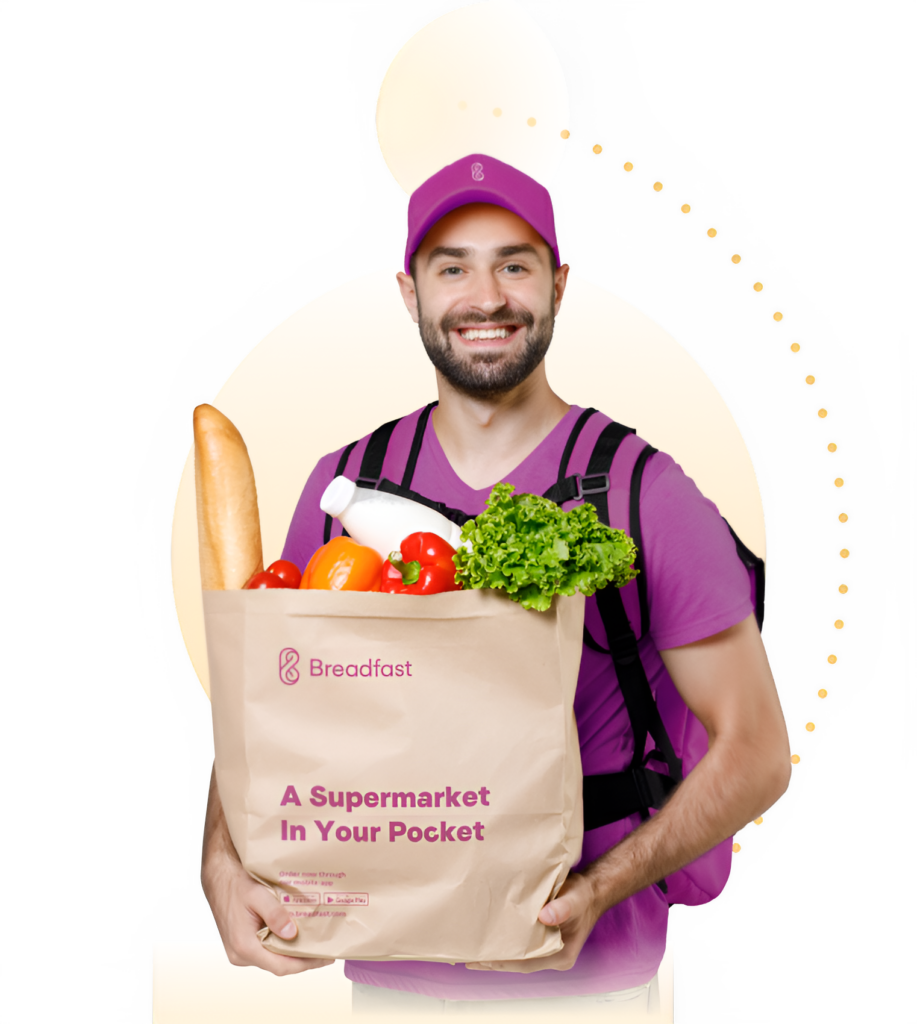Breadfast
Following an extension of its Series B funding round in 2024, Egypt-based Breadfast has now reached a valuation of $268 million. VNV Global AB, which is one of Breadfast’s biggest investors revealed that its 8.6% stake in the company is now valued at $23.1 million, an upward trajectory from a prior $16.9 million in 2021. This upward climb reflects the startup’s resilient growth dispute the nation’s economic challenges, which has resulted in multiple currency devaluations since 2022.
Former co-founder of Egyptian Streets Mustafa Amin, alongside Abdullah Nofal and Mohamed Habib, established Breadfast in 2017. Breadfast leverages a vertically integrated supply chain that enables it to deliver more than 6,000 SKUs which includes fresh bread, dairy, meat, poultry and consumer packaged goods within an hour. The company has opened 39 fulfillment centers across four Egyptian cities. Boasting of processing nearly one million orders monthly per month with over 300,000 active users, Breadfast has shown entered Egypt’s quick-commerce landscape.
The company, in the face of inflation and currency devaluation, has shown strong financial performance by surpassing $150 million in annual recurring revenue for 2024. This represents a 38-fold increase in constant currency since 2021. The quick-commerce startup has been able to differentiate itself by deciding to own and control its supply change, bringing about operational efficiency and cost management. In contrast to other grocery delivery startups that merely function as middlemen, Breadfast operates its own bakeries and fulfillment. This business model has proven instrumental for ensuring product quality and streamlined logistics, while sustaining the company’s unit economics.
“Building a grocery marketplace alone wouldn’t work. Owning the supply chain was necessary because the margins are thin, and reliability in emerging markets is key,” Co-founder and CEO Mustafa Amin said.
Breadfast is said to have a retention rate exceeding 80%, a testament to its strong reputation for reliability and convenience. It also offers a flexible mix of both on-demand grocery deliveries and scheduled early-morning deliveries. Furthermore, the company’s localized approach has allowed it to expand strategically. Breadfast is currently present in Cairo, Giza, Alexandria, and Mansoura.
The startup is now looking beyond groceries as it now eyes a foray into fintech with the launch of Breadfast Pay, a platform that aims to offer financial services like cash deposits, withdrawals, and savings products. The initiative includes a Breadfast-branded payment card, positioning the company within Egypt’s growing digital financial ecosystem. This move echoes similar trends heard in southeast Asia, where companies like Gojek have ventured from their major offerings into fintech in a strategic plan to diversity revenue.
Despite economic uncertainties, Breadfast continues to attract investor confidence due to its scalable business model and market traction. With strong financial backing, a vertically integrated supply chain, and expansion into fintech, the company is well-positioned to navigate economic fluctuations while capitalizing on Egypt’s growing demand for digital grocery services.

